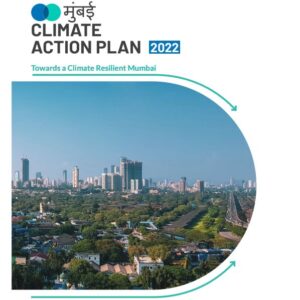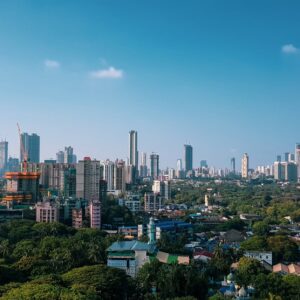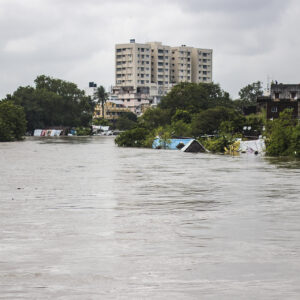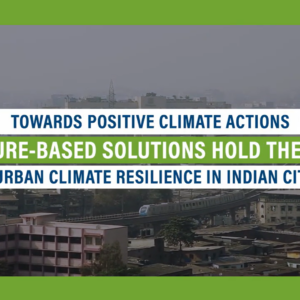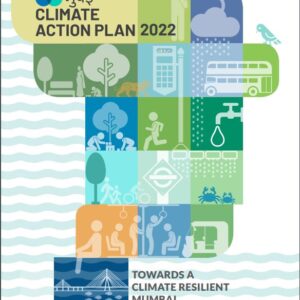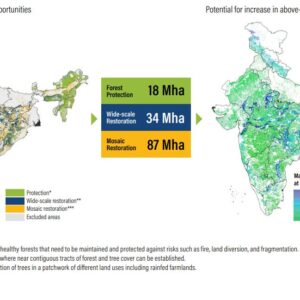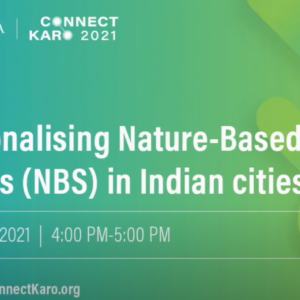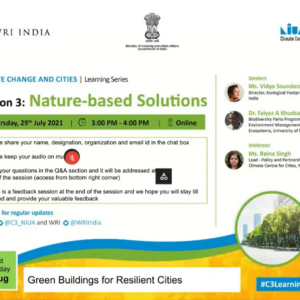The Mumbai Climate Action Plan (MCAP) is a comprehensive strategy to tackle the challenges of climate change by adopting inclusive and robust mitigation and adaptation strategies. The Plan has identified vulnerable communities that are most impacted by the effects of climate change and has introduced sector specific strategies for mitigation and adaptation, to enhance and...
Category: View All
Urban Blue-Green Conundrum: A 10-city Study on the Impacts of Urbanization on Natural Infrastructure in India
Urban development in all forms impacts the natural landscape, changing vegetation cover, infiltration rates and hydrological (surface and sub-surface) flows. With increasing urbanization urban areas lose a host of natural infrastructure and ecosystem services as ecosystems are modified, degraded and/ or shrunk. Benefits such as flood control, aquifer replenishment, microclimate control, improved air quality are...
Flood Risk in Mumbai – Consultative Stakeholder Workshop
BMC in collaboration with WRI India as knowledge partner conducted a two-day consultative workshop on Flood Risk in Mumbai in April 2022. Government representatives from various departments: hydrological, engineering, and stormwater management discussed the complexities of managing monsoon floods in Mumbai, with flood modelling experts, social scientists, urban planners and designers, community organizations, and impacted...
India’s First National Coalition Platform for Urban Nature-based Solutions
The National Institute of Urban Affairs’ Climate Centre for Cities (NIUA C-Cube) and WRI India launched the ‘India Forum for Nature-based Solutions’ on 29th June 2022 at the 11th World Urban Forum in Katowice, Poland. Nature-based solutions (NbS) are fast emerging as cost-effective and sustainable ways to address climate change induced challenges such as heat,...
Mumbai Climate Action Plan 2022: Summary for Policy Makers
The Mumbai Climate Action Plan (MCAP) is a comprehensive strategy to tackle the challenges of climate change by adopting inclusive and robust mitigation and adaptation strategies. The Plan has identified vulnerable communities that are most impacted by the effects of climate change and has introduced sector-specific strategies for mitigation and adaptation, to enhance and strengthen...
Roadmap for Scaling Trees Outside Forests in India: Learnings from Select States on Policy Incentives, Enabling Conditions, and Barriers
This paper discusses a roadmap for growing more trees outside forests across India. It analyzes the main public policies that incentivize landholders to embrace agroforestry and other approaches to growing trees on farmland, in urban areas, and across other landscapes. It ends with concrete recommendations for policymakers that want to improve the implementation of these...
Connect Karo 2021 | Operationalising Nature Based Solutions (NBS) in Indian cities
The growing impact of climate change has made it critical to include nature-based solutions (NBS) in urban planning. The session looked at the current barriers in operationalising NBS and the potential opportunities for NBS.
Climate Change and Cities: Learning Series | Session: Urban Freshwater Ecosystems
The session presented data and analytics on the changes to urban water ecosystems due to expanding city footprints and highlight the potential of nature-based solutions and blue-green infrastructure to serve as assets for climate proofing cities to water risks and stresses. The speakers also explained cases on restoring the city’s wetlands and lakes and their...
Climate Change and Cities: Learning Series | Session: Nature-based Solutions
The session introduced various Nature-based Solutions (NbS) that have been adopted by cities to address climate related challenges. The effective implementation of NbS that involves inter-departmental coordination along with other stakeholder participation was also discussed. Tools available to compare the costs and benefits for making informed decisions on where NbS is appropriate were highlighted.

